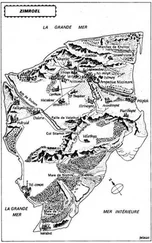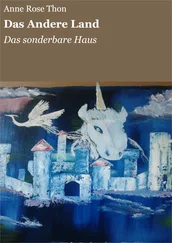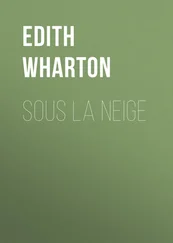Anne Wharton - In Château Land
Здесь есть возможность читать онлайн «Anne Wharton - In Château Land» — ознакомительный отрывок электронной книги совершенно бесплатно, а после прочтения отрывка купить полную версию. В некоторых случаях можно слушать аудио, скачать через торрент в формате fb2 и присутствует краткое содержание. Жанр: Путешествия и география, История, foreign_edu, foreign_antique, foreign_prose, на английском языке. Описание произведения, (предисловие) а так же отзывы посетителей доступны на портале библиотеки ЛибКат.
- Название:In Château Land
- Автор:
- Жанр:
- Год:неизвестен
- ISBN:нет данных
- Рейтинг книги:5 / 5. Голосов: 1
-
Избранное:Добавить в избранное
- Отзывы:
-
Ваша оценка:
- 100
- 1
- 2
- 3
- 4
- 5
In Château Land: краткое содержание, описание и аннотация
Предлагаем к чтению аннотацию, описание, краткое содержание или предисловие (зависит от того, что написал сам автор книги «In Château Land»). Если вы не нашли необходимую информацию о книге — напишите в комментариях, мы постараемся отыскать её.
In Château Land — читать онлайн ознакомительный отрывок
Ниже представлен текст книги, разбитый по страницам. Система сохранения места последней прочитанной страницы, позволяет с удобством читать онлайн бесплатно книгу «In Château Land», без необходимости каждый раз заново искать на чём Вы остановились. Поставьте закладку, и сможете в любой момент перейти на страницу, на которой закончили чтение.
Интервал:
Закладка:
From this room instinct with the atmosphere of culture, a fit setting for the profoundly intellectual woman who inhabited it, we stepped through one of the long windows to the terrace which commands a glorious view. In the distance, yet not seeming very far away in this clear air, is that well-known group of which Mont Blanc is the central peak, with the Dent du Géant and the Aiguilles du Glacier and D'Argentière standing guard over its crystalline purity. We had seen Mont Blanc and its attendant mountains from the heights of Mont Revard, and knew its majestic beauty as seen from Chamounix; but we all agreed that nothing could be lovelier than these white peaks rising above the sapphire lake, with the blue cloud-flecked sky over all. Yet, with this perfect picture spread before her, Madame de Staël longed for the very gutters of Paris, its sights and sounds, which were inseparably associated in her mind with the joyous chatter of the salon to which she had been introduced at an age when most children are in the nursery. Seated upon a high chair in her mother's salon, little Anne Germaine Necker listened eagerly to the discourses of the great men of her day. Listening was not destined to be her rôle in later years; but to pace up and down the long drawing room at Coppet, with the invariable green branch in her beautiful hands, uttering words that charmed such guests as Schlegel, Sismondi, Bonstetten of Geneva and Chateaubriand. It was Chateaubriand who said that the two magical charms of Coppet were the conversation of Madame de Staël and the beauty of Madame Récamier.
Madame de Staël's library opens into her bedroom, and beyond this is the charming little apartment dedicated to Madame Récamier. This small, dainty room, with hand-made paper upon its walls of delicate green decorated with flowers and birds, seemed a fit setting for the flower-like beauty who occupied it, a lily that preserved its purity amid the almost incredible corruption of the social life of the period.
Madame de Staël's own bedroom is filled with pictures, and souvenirs of the vie intime of one who with all her faults was dowered with a limitless affection for her family and friends. Here is a marble bust of the beautiful daughter Albertine in her girlhood, and on the right of Madame de Staël's bed is a portrait of her mother, in water color painted during her last illness, the fine, delicate old face framed in by a lace cap. On the margin of this picture is written, "Elle m'aimera toujours." Under this lovely water color is the same picture reproduced in black and white, beneath which some crude hand has written in English the trite phrase, "Not lost, but gone before."
In a glass case are Madame de Staël's India shawls, which, like Josephine de Beauharnais and other women of the period, she seems to have possessed the art of wearing with grace and distinction. One of these shawls appears in the familiar portrait by David, which is in a small library or living room au premier; this we reached by climbing many stairs. It is quite evident that David was not in sympathy with his sitter, as in this painting he has softened no line of the heavy featured face, and illumined with no light of intellect a countenance that in conversation was so transformed that Madame de Staël's listeners forgot for the moment that she was not beautiful.
Quite near the portrait of the exile of Coppet, as she was pleased to call herself, is one of Baron de Staël Holstein, in court costume, finished, elegant, handsome perhaps, but quite insignificant. It is surely one of the ironies of fate that the Baron de Staël is only remembered to-day as the husband of a woman whom he seems to have looked upon as his social inferior. In this living room is a large portrait of M. Necker, indeed, no room is without a portrait or bust of the idolized father, and here, looking strangely modern among faces of the First Empire, is a charming group of the four daughters of the Count d'Haussonville, the present owner of Coppet. Several portraits and busts there are, in the drawing room, of beautiful Albertine de Staël, wife of Victor, Duc de Broglie, whom Madame de Staël says that she loved for his tenderness and sympathy.
In this spacious, homelike drawing room, furnished in the style of the First Empire, and yet not too fine for daily use, we could imagine Madame de Staël surrounded by her brilliant circle of friends, many of whom had been, like herself, banished from the Paris that they loved. She is described by Madame Vigée Lebrun, and other guests, as walking up and down the long salon, conversing incessantly, or sitting at one of the tables writing notes and interjecting profound or brilliant thoughts into the conversation. "Her words," added Madame Lebrun, "have an ardor quite peculiar to her. It is impossible to interrupt her. At these times she produces on one the effect of an improvisatrice."
Ohlenschlager described the châtelaine of Coppet as "living in an enchanted castle, a queen or a fairy," albeit of rather substantial proportions, it must be admitted, "her wand being the little green branch that her servant placed each day by her plate at table." The time of the Danish poet's visit was that golden period in the life of the château when it was the rendezvous of many of the savants of Germany and Geneva. Into the charmed circle, at this time, entered Madame Krüdener, that strangely puzzling combination of priestess and coquette, whose Greuze face and mystic revelations touched the heart of an Emperor. Standing in the long salon, which contains many portraits and souvenirs of the habitués of Coppet, we realized something of the life of those brilliant days, when the walls echoed to what Bonstettin called "prodigious outbursts of wit and learning," and upon whose boards classic dramas and original plays were acted, often very badly, by the learned guests. Rosalie de Constant wrote that she trembled for her cousin Benjamin's success in Mahomet , which rôle he accepted with confidence, while beneath the play at life and love the great tragedy of a passionate human soul is played on to the end, for this is the period of storm and stress, of alternate reproaches and caresses, from which Benjamin Constant escaped finally to the side of his less exacting Charlotte.
After spending some weeks in the company of a hostess who could converse half the day and most of the night with no sign of fatigue, it is not strange that Benjamin Constant sometimes found himself wearied by the mental activity of Coppet, where "more intellect was dispensed in one day than in one year in many lands," or that Bonstettin said that after a visit to the château, "One appreciated the conversation of insipid people who made no demand upon one's intellect." And brilliant as was that of the hostess, her guests doubtless hailed as a relief from mental strain occasional days when she became so much absorbed in her writing that she ceased for a while to converse, and they were free to wander at will through the beautiful park, or to gather around the Récamier sofa, still to be seen in one corner of the salon, where the lovely Juliette held her court.
Madame Récamier, like Benjamin Constant, Sismondi, and many other distinguished persons who had incurred the displeasure of Napoleon, found what seems to us a gilded exile at Coppet in the home of the Emperor's arch-enemy. The close friendship of Germaine de Staël and Juliette Récamier, even cemented as it was by the common bond of misfortune, is difficult to understand. That Madame de Staël kept by her side for years a woman whose remarkable beauty and sympathetic charm brought out in strong contrast her own personal defects, presupposes a generosity of spirit for which few persons give this supremely egotistical woman credit. She always spoke of Madame Récamier in rapturous terms, and her "belle Juliette" and her "dear angel" seems to have been free under the eyes of her hostess to capture such noble and learned lovers as Mathieu de Montmorency, Prince Augustus of Prussia, Ampère, and Chateaubriand. It was only when that ill-named Benjamin Constant allowed his unstable affections to wander from the dahlia to the lily that Germaine de Staël's anger was aroused against her friend. For a short period Madame Récamier ceased to be the "belle Juliette" and the "dear angel" of the mistress of Coppet until, with a truly angelic sweetness of temper and infinite tact, she made Germaine understand that she had no desire to carry off her recreant lover and so the friendship continued to the end.
Читать дальшеИнтервал:
Закладка:
Похожие книги на «In Château Land»
Представляем Вашему вниманию похожие книги на «In Château Land» списком для выбора. Мы отобрали схожую по названию и смыслу литературу в надежде предоставить читателям больше вариантов отыскать новые, интересные, ещё непрочитанные произведения.
Обсуждение, отзывы о книге «In Château Land» и просто собственные мнения читателей. Оставьте ваши комментарии, напишите, что Вы думаете о произведении, его смысле или главных героях. Укажите что конкретно понравилось, а что нет, и почему Вы так считаете.












